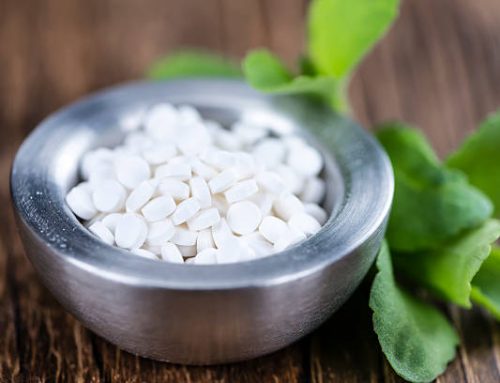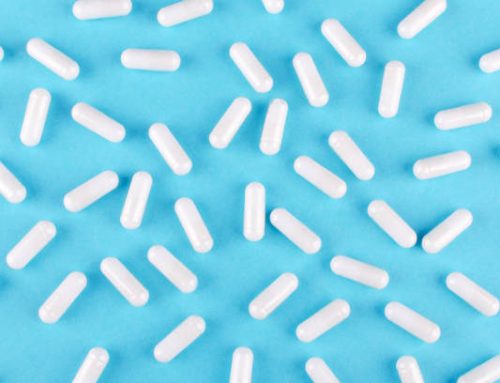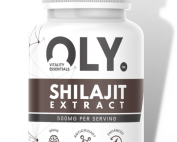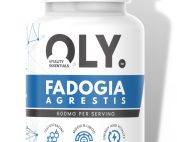The human gut is a mysterious ecosystem teeming with trillions of microorganisms that play a crucial role in our digestion, immunity, and overall health. Yet, few of us pause to reflect on the health of our gut until it becomes an issue, such as bloating, constipation, or gastrointestinal infections. However, recent research has shown that nurturing your gut microbiome can have profound effects on your physical and mental well-being, from reducing inflammation and allergies to boosting mood and brain function. And one of the simplest and most delicious ways to cultivate a healthier gut is by incorporating kefir into your diet. In this article, we’ll explore the scientific benefits of kefir and how to make it at home, so you can join the ranks of the kefir converts and enjoy a happier, healthier gut.


1. The Wonders of Kefir: An Introduction to a Healthier Gut
The Power of Kefir’s Probiotics
Kefir is a fermented drink made with kefir grains, a symbiotic combination of yeast and bacteria that can be added to milk or water. The process of fermentation stimulates lactic acid production, which helps break down lactose, making it easier for your digestive system to absorb the nutrients.
The bacterial strains present in kefir have shown to provide a range of health benefits, including improving digestion, strengthening the immune system, and reducing inflammation. One study published in the Journal of Medicinal Food found that kefir reduced markers of inflammation in individuals with metabolic syndrome.
Besides reducing inflammation, kefir can also have a positive impact on mental health. The microbiome in our gut, where the probiotics in kefir reside, is connected to our brain through the enteric nervous system. The consumption of kefir can promote the growth of beneficial bacteria in the gut, which may increase the production of neurotransmitters such as serotonin and dopamine.
The Nutrient-Rich Drink
Kefir is also a nutrient-dense beverage, rich in vitamins and minerals that can benefit the body in various ways. It contains calcium, magnesium, and phosphorus, which are important for bone health. Additionally, kefir is also a great source of protein, B vitamins, and biotin, beneficial for maintaining healthy hair, skin, and nails.
One of the most fascinating aspects of kefir is its ability to modulate the immune system. Research has shown that the probiotics and fermented components of kefir can enhance immune cell activity, making it a potential therapy for autoimmune diseases such as Crohn’s or ulcerative colitis.
Making Kefir Part of Your Routine
Kefir can be an excellent addition to your daily routine, as it’s simple to make at home and can be customized to your taste. It’s also versatile enough to add to smoothies or use as a cooking ingredient.
It’s essential to note that not all kefir products are created equal. When purchasing kefir, it’s essential to read labels and look for those with live and active cultures, as many commercial brands contain added sugar and preservatives. Making it yourself ensures the highest quality and helps you maintain control over the ingredient.
Overall, kefir is a fantastic probiotic-rich drink that can bring a range of health benefits to your gut, immune system, and overall well-being. Incorporating homemade kefir into your diet can be an easy way to keep your gut happy while also experimenting with new recipes.
2. The Science Behind Kefir: Understanding the Probiotic Powerhouse
Kefir is a fermented milk-based drink that has been consumed in various parts of the world for centuries. It is a traditional food in countries like Russia, Caucasus, and Central Asia, and is known for its probiotic properties, which provide several health benefits to the body.
The probiotics in kefir are microorganisms that are beneficial to human health. These microorganisms include bacteria, yeast, and other beneficial microorganisms. Kefir is a rich source of probiotics, with nearly 30 different strains of these microorganisms. Some of the common types of bacteria found in kefir include Lactobacillus, Acetobacter, and Streptococcus.
Kefir has been widely studied for its medicinal properties. Several studies have demonstrated that consuming kefir can help improve gut health, boost immunity, and lower inflammation. Kefir has also been shown to aid in digestion by breaking down lactose, the primary sugar found in milk. This makes kefir an excellent choice for individuals who are lactose intolerant.
One of the key reasons why kefir is so beneficial is because it contains live active cultures, which are essential for good health. These live active cultures help to populate the gastrointestinal tract with beneficial bacteria, which can improve digestion, fight off pathogenic bacteria, and help the body absorb nutrients more efficiently.
Overall, kefir is a probiotic powerhouse that offers many health benefits. It is a rich source of nutrients, vitamins, and minerals, and is an excellent choice for individuals looking to improve their gut health and overall well-being. So if you’re looking for a natural way to support your digestive health, kefir is an excellent addition to any diet!
3. Cultivating a Better Gut: How Kefir Can Boost Digestive Health
The gut is an important part of the body that plays a significant role in our overall health. A healthy gut helps reduce inflammation, boost the immune system, and promote good digestion. Several factors can contribute to poor gut health, including stress, poor diet, antibiotics, and lack of sleep.
Kefir is a fermented milk drink that has become increasingly popular over the years for its health benefits, particularly in improving gut health. The unique composition of kefir makes it an excellent probiotic, which means it contains beneficial bacteria that can aid digestion and promote gut health.
- Improved Digestion: The probiotics in kefir can help balance the bacteria in the gut and improve digestive function.
- Reduced Inflammation: Kefir contains anti-inflammatory compounds that can help reduce inflammation in the gut and improve overall health.
- Enhanced Immune Function: The probiotics in kefir can boost the immune system and help fight off harmful pathogens in the gut.
Studies have shown that consuming kefir regularly can help improve digestion and reduce symptoms of digestive disorders such as Irritable Bowel Syndrome (IBS). Kefir can also help improve lactose intolerance and reduce the risk of certain cancers such as colorectal cancer.
In conclusion, kefir is an excellent addition to a healthy diet and can help improve gut health. Incorporating kefir into your daily routine can help reduce inflammation, promote good digestion, and boost your immune system.
4. Paving the Way for a Stronger Immune System: Kefir and Its Immunomodulatory Effects
Kefir, the fermented milk product, has been gaining popularity as a healthy food item that is known for its probiotic properties. Recent research has indicated that kefir can also modulate the immune system and boost its activity. This article discusses the immunomodulatory effects of kefir and how it may help in enhancing the immune response.
Kefir is a rich source of live bacteria and yeasts that can induce a positive effect on host immunity. Kefir contains several types of bacteria, including Lactobacillus, Lactococcus, and Bifidobacterium, that are known to enhance the immune system’s functioning. According to studies, the probiotics present in kefir can stimulate the immune system’s activity by activating various immune cells, such as macrophages, natural killer cells, and T-cells.
Moreover, kefir contains bioactive compounds, such as polysaccharides, peptides, and lipids, that have been shown to have immunomodulatory properties. These compounds can modulate the immune system’s response by upregulating or downregulating the expression of cytokines, which are signaling molecules that regulate the immune response.
In addition to promoting the immune system’s activity, kefir can also prevent certain diseases by providing protection against harmful bacteria and viruses. Kefir has been shown to exhibit antibacterial, antiviral, and antifungal properties that can inhibit the growth of pathogenic microorganisms, reducing the risk of infections.
In conclusion, kefir is a dietary option that can promote a stronger immune system by enhancing the activity of immune cells, moderating cytokine expression, and providing protection against infections. Introducing kefir to your diet may be especially beneficial for individuals who have weakened immune systems, such as the elderly or those who are immunocompromised. Consuming kefir regularly, alongside a healthy diet and lifestyle, may pave the way towards a stronger immune system and better health.
Benefits of Kefir on the Immune System:
- Stimulates the immune system’s activity
- Activates immune cells, such as macrophages, natural killer cells, and T-cells
- Modulates cytokine expression, which regulates the immune response
- Exhibits antibacterial, antiviral, and antifungal properties
5. Getting Your Daily Dose of Kefir: Tips for Incorporating It Into Your Diet
Kefir is a fermented dairy drink that is rich in probiotics, which provide a host of health benefits. However, many people struggle to incorporate kefir into their diet because it can have a strong, tangy taste. Here are some tips to help you get your daily dose of kefir:
1. Mix it with fruit or other flavorings
If you find the taste of plain kefir to be too strong, try mixing it with some fruit or other flavorings. Berries, bananas, and honey are all great options that can help balance out the tangy taste of kefir. You can also try adding a dash of cinnamon, nutmeg, or vanilla extract for extra flavor.
2. Use kefir in smoothies or shakes
Kefir can be a great addition to smoothies or shakes. Its tangy flavor can be balanced out by the sweetness of the fruit, and it adds a creamy texture to the drink. To make a kefir smoothie, simply add kefir, fruit, and any other desired ingredients to a blender and blend until smooth.
3. Use kefir in recipes
Kefir can be used as a substitute for milk or buttermilk in many recipes. It can also be used to make salad dressings, dips, and marinades. Using kefir in recipes is a great way to incorporate it into your diet without having to drink it plain if you don’t like the taste.
4. Start with a small amount
If you’re new to kefir, start with a small amount and gradually increase your intake as your taste buds adjust to the flavor. You can start by adding a small amount of kefir to your smoothies or recipes, or by drinking a small amount each day and increasing the amount over time.
Overall, there are many ways to incorporate kefir into your diet, even if you don’t like the taste. By experimenting with different flavorings and recipes, you can find a way to get your daily dose of kefir and reap the many health benefits it provides.
Conclusion:
With its incredible benefits for gut health, kefir is an essential ingredient for anyone who wants to cultivate a healthier digestive system. This fermented drink is rich in probiotics, vitamins, and minerals that nourish your gut microbiome while supporting digestion, immunity, and brain function. By adding kefir to your diet regularly, you can improve your overall health and wellbeing, reduce inflammation and protect yourself from chronic disease. Whether you prefer milk kefir, water kefir, or vegan kefir made from coconut or cashews, you can enjoy a refreshing and delicious drink that boosts your health.
FAQs:
1. What is kefir, and where does it come from?
Kefir is a fermented drink made from milk, water, or other liquids that contain kefir grains – a symbiotic culture of bacteria and yeasts. Kefir originated in the Caucasus Mountains of Eastern Europe and has been consumed for centuries as a traditional food and medicine.
2. What are the benefits of kefir for gut health?
Kefir is a rich source of probiotics, or beneficial bacteria, that colonize your gut and compete with harmful microbes. These probiotics can improve digestion, reduce inflammation, boost immunity, and even affect your mood and behavior. Kefir also contains vitamins and minerals that nourish your gut lining and support the growth of beneficial bacteria.
3. Can kefir help with lactose intolerance?
Yes, kefir may be easier to digest for people with lactose intolerance, as the fermentation process reduces the lactose content of the milk. However, people with severe lactose intolerance may still experience symptoms when consuming kefir.
4. How much kefir should I drink, and how often?
There is no specific recommendation for how much kefir to drink or how often, as it depends on your individual needs and preferences. However, most people consume 1-2 cups (8-16 ounces) of kefir per day, either as a snack or with a meal. You can also use kefir as a substitute for milk in smoothies, dressings, and other recipes.
5. Can kefir interact with medications or cause side effects?
Kefir is generally safe and well-tolerated by most people, but some individuals may experience side effects such as bloating, gas, diarrhea, or allergic reactions. Kefir may also interact with certain medications, such as antibiotics or antifungals, by affecting their absorption or metabolism. If you have any concerns about using kefir with your medications or health conditions, talk to your doctor or a registered dietitian.









